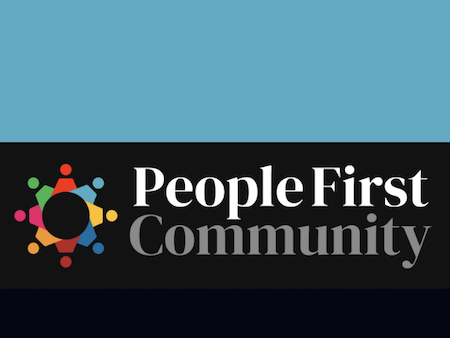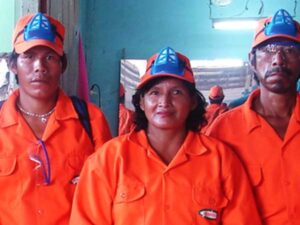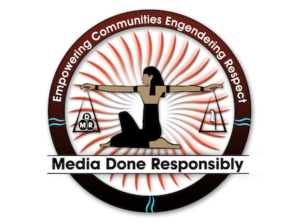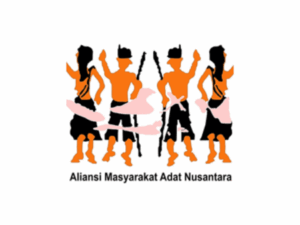People First Community is a collaborative effort to support leadership skill development in the field of sustainable development.
Anna Molero of People First Community spoke with Catherine Edwards on March 7, 2023. Click here to read the full conversation with insights highlighted.
Catherine Edwards: Could I ask you to introduce yourself and if you could also sum up, first of all, the problem that your work addresses. What problem are you trying to fix?
Anna Molero: My name is Anna Molero, and I wear two hats: I’m the chief government officer at Teach For All, and I’m also the Secretariat of the People First Community.
The problem is mostly around, how do we foster locally-led development and local ownership? To bring a bit of background, it’s been for many years that the international development field has grappled with this question around, how do we enable local ownership for development, which is essential, as we all know, for sustainable and systemic change. We’ve seen many calls becoming louder and louder around prioritizing community-driven approaches, greater localization, and directing more grant making to local organizations. We’ve also heard about decolonizing aid, but I think one of the missing pieces, which is the one that we’re trying to address with this broader effort to foster locally-led development over the past decade, has been an intentional effort to invest in developing the agency and leadership of proximate leaders. We think this is important because they are the ones who will identify and drive the change that’s necessary in their context, rather than outsiders identifying and seeking to implement ready-made solutions.
Solving this problem is at the core of this People First Community that I am part of, which is a cross-sectoral and globally diverse group of practitioners, policy makers, private sector organizations, and researchers with a shared belief around the importance of prioritizing investing in leadership development as a path to sustainable development. Right now there are 500 members of the community, and we’ve been trying to respond to this challenge in different ways. The first of them is to advance our collective thinking around what kind of leaders we need and how we develop them. The second one is we’ve been exploring learning questions and a research agenda around the impact of leadership development in systemic change. And the third one, we’ve been working to raise awareness and build more understanding and championship around the need to invest in leadership development as a path to what I was saying at the beginning: locally-led development and sustainable development, ultimately.
Catherine Edwards: Who are the people that you are serving and how do you get in touch with them and engage them?
Anna Molero: The Community is created by 500 cross-sectoral leadership development organizations, private sector donors, governments, researchers. And we are all trying to unpack this question around, how do we support leadership development as a path to sustainable development? We are trying to figure out, what are the kind of leaders that we, as the development community, the practitioners, the funders, can support? How do we support them in building their leadership capabilities, in fostering their agency? So the ultimate beneficiaries, if you want, are the proximate leaders that we are supporting and exposing them in order for them to lead, identify, and drive the changes in their context versus having solutions raining from the outside. We support these proximate leaders from different vantage points.
Catherine Edwards: Can you share a bit more detail about how you support them?
Anna Molero: It depends on each of the leadership development organizations that are practitioners in this community and that are supporting developing the leadership and the agency of those proximate leaders. Let me just put an example: the African Leadership Academy, for instance, is one of these programs that has a specialized curriculum that provides hands-on leadership development. If I’m not wrong, 90% of the alumni that they have supported are actively engaged in projects to accelerate Africa’s growth trajectory. So that’s one example. I would also share the example of Teach For All where I work, which is very familiar. That is actually working to develop collective leadership in the education sector to enable all kids to fulfill their potential. We have a teaching fellowship of two years where what we call our fellows learn firsthand what the challenges in the ecosystem around kids in the most marginalized communities are.
We develop their leadership skills so that when they finish this leadership and fellowship journey, they decide to stay in the education sector, working at all levels of the systems to enable all children to have the education, support and opportunity to shape a better future for themselves and all of us. Around 75,000 of them have decided to stay there. The last example I would bring is what Global Health Corps is doing, in this case, not in the education sector, but in the health sector, which actually recruits the most promising young leaders and embeds them in health organizations in Africa and the United States. They have 1,000 changemakers, as they call them, who are people that are serving communities in the health space.
Catherine Edwards: What would you say makes your approach different to how things were done before or maybe how other people are addressing this problem?
Anna Molero: If we want to foster locally led development and sustainable development, we have seen many calls out there like, “Let’s give more money to local actors,” or “Let’s decolonize aid,” or “Let’s foster community-driven approaches.” And all these efforts and movements are very much needed. But if we don’t develop the agency and the leadership of local people, all these other efforts are not going to work, right? You’re going to be giving more funding to local organizations, but if their leaders are not empowered and are not supported and exposed, then that’s not going to be as effective. This effort is very complementary to all these other efforts in the locally-led sustainable development movement. The People First approaches, we think they advance systemic change and sustainable development.
We usually tend to think that it comes from the government, like systemic change happens from governments alone. We actually believe that it requires leadership at all levels of the system — leaders in education in the classrooms, social entrepreneurs, in the ministries, as policy makers, school principals. Leaders at all levels of the system, not only in government, that work collaboratively and together to transform the whole system. I think that’s a different approach.
Another different approach that we believe in the People First Community is that we need a mindset shift. The global development community needs to learn how to cede control and recognize that through advanced sustainable development, we need to take a long-term approach, because building the leadership and the agency of local and proximate leaders, that’s going to take time. Results are not immediate. That’s another difference. The last one is that we always say, the development paradigm that currently exists, it’s mostly focused on, let’s invest or let’s prioritize things like technical solutions, like interventions. Whereas we’re saying, let’s prioritize people. Let’s prioritize investing in people and their leadership and cultivating their agency if we ever want to see sustainable development and systemic change.
Catherine Edwards: Working with such long-term, complex goals, it’s quite challenging to measure success. How are you measuring the success of your work?
Anna Molero: That’s one of the challenges that we’re seeing. How do we measure the impact of leadership development and, even more specifically, of collective leadership as a lever to system change? I was saying at the beginning that it’s long term; the impact of investing in the leadership of someone or cultivating the agency, it’s going to play out in the long term. I know that in the development sector, we still favor [randomized control trials] and short term indicators or outcomes.
This is a huge challenge because in our case, the impact of, what’s the progress of communities, or what’s the progress of whole countries, will depend on the leadership that’s exerted at all levels, as I was saying, not only in policymaking. That’s how we are trying to measure success with this long-term vision, and that’s what makes it very challenging to show in front of funders or others. It’s true that also we’re seeing a gap in the research agenda. There’s still many learning questions around how collective leadership and development impact systemic change. We would need more of a body of research around that, and that’s one of the challenges that this movement is facing.
Catherine Edwards: Do you have any examples of the impact that it’s had so far, maybe on one specific program maybe on a bit of a smaller scale?
Anna Molero: Teach For All is a People First approach investing in collective leadership to ensure our kids fulfill their potential. So we measure impact in different ways like how this teaching fellowship, where we really invest in the leadership of these teachers for two years, what’s the impact on student academic and non-academic outcomes in the classroom during the two years where they are teaching through the leadership fellowship? Then we also measure the midterm effects — what are the effects on mindsets, beliefs, and behavior of these teachers? What we are seeing is a positive shift of mindsets toward the beliefs and the sense of possibilities that the challenges that the kids are facing can be changed. We’re also measuring the long-term impact of how this leadership development fellowship program changes the composition of leaders at a system level and what aggregate progress that brings for communities like the Washington DC area or the greater London district. It’s more like the aggregate outcome. And there are many other examples from the People First Community.
Catherine Edwards: What insights and lessons you’ve learned from doing this work could help other people maybe starting out on this journey? So what is the advice you’d give to someone who wants to do something similar to what you’ve done? How should they get started?
Anna Molero: These three insights that I was sharing at the beginning: that system change doesn’t happen from government alone, so we should think about that; that we need a mindset shift in the development community to put people first; and then we need to shift the investment or the development paradigm from investing in things versus investing in people. These are the key learnings that, if I could send a message out there I would say, if I’m a funder, if I’m a practitioner as I am, or if I research, are we taking into account these three things in our practices so that we are enabling proximate leaders to effect systemic change?
Catherine Edwards: Is there anything specific that you tried and worked really well that you’d recommend, or perhaps something that you tried and it didn’t work as expected, so you had to change it? Were there any lessons like that about what specific parts of the work worked or didn’t?
Anna Molero: As a community, as People First Community and this effort, what we’ve seen in the past is the development dollars that are invested in leadership development, it’s very little. But when investing in leadership development has been prioritized, it has usually been around investing in developing the “old school” term of leadership. We haven’t been investing in developing the proximate leaders that are diverse, locally rooted, that work collectively and together with one another. What we’ve done sometimes has been to invest in the leaders in the Global South and we’ve taken them to the Global North. We’ve invested in their leadership development, but following this western paradigm of leadership that’s mostly focused on the colonial roots of many of our development approaches, we’ve created this elite cadre of leaders or this diaspora. So I think one of the learnings has been to approach leadership development with this western paradigm and mindset versus actually developing the collective leadership that we’re talking about here, which is diverse, it’s locally rooted, and it works at all levels of the system versus only for an elite.
Catherine Edwards: How could someone make sure they’re doing that? Are there any specific actions someone can take to make sure that they’re getting that diversity, and from the start?
Anna Molero: There’s a lot related to this misunderstanding about the concept of leadership, which is, as I was saying, still very closely tied to this western paradigm, centered around the charismatic leader, those who are in positions of power. To solve that, to push that, I think we need to move past this paradigm of positional and individualistic leadership and this idea that one is born to lead. Instead, we should be adopting the mindset that leadership is something that can be learned and that can be cultivated through experience and alongside others. We’ve seen that the most powerful things for systemic change have been when we’ve taken this approach and this mindset shift towards leadership. That’s what I would suggest to all of us, to embrace this mindset around what a leader is and how we develop them.
Catherine Edwards: You’ve mentioned a few of the challenges that you’ve faced, and I was wondering if there are any other major challenges that you’re facing with your work right now, or perhaps challenges that you were facing and have overcome?
Anna Molero: I think I’ve named a few, like this need for a mindset shift toward what leadership means and how do we position proximate leaders at the center. That’s one of the challenges. The development paradigm is not yet there. The other one is the lack of resources. As I was saying, only approximately 0.01% of total development assistance goes to projects related to local leadership development across all sectors, which is very little. And even this small fraction was not directed toward developing the collective leadership that we’re talking about here, mostly positional leadership. There’s definitely a lack of resources, and I think that this lack of resources ties very well with what I was sharing at the beginning around the challenge in measuring the impact. We have funders, I think they agree that this work matters, but the question is, are they willing to do the internal work of aligning their strategies to make room for longer term and more flexible funding in the timelines and new ways of measuring impact?
I think the funding piece goes together with the long-term mindset and the ability to measure things in a different way to capture this long-term impact. Another challenge that we are facing is a pressure on scaling up. In the international development space, a best practice is the one that scales up solutions. So picking up an intervention that works somewhere and replicating it somewhere else in a developing context with a promise of short-term results that are going to be growing exponentially. Instead, we think — and again, that goes to the mindset shift — that we should be engaging with the people that are more proximate to these challenges, investing in them so they can find their own solutions versus reigning solutions from the outside that can be easily replicable. I think this pressure on scaling up is a big challenge as well.
Catherine Edwards: You spoke about systemic change coming from a wide variety of people. Could you talk a bit about how you are working to advance that system-level change?
Anna Molero: The basis for this People First effort is that not one leader or policy or practice can help change systems. We don’t think that these policies and technical fixes alone will shift systems. Systems are made of people and they are driven by the culture and ways of being and of doing. So, it’s people, not things, that are going to shift systems over time, especially when the challenges of a system are becoming more adaptive and more complex. This isn’t to say that we don’t need policies and government solutions, but if we don’t take into account the complexity of a system and the people and the leadership at all levels that it will require, then it’s going to be very challenging to change this system. That’s our approach to it.
Catherine Edwards: What are the key things you think need to happen or the key actors who need to get involved in order for that change to happen?
Anna Molero: We need to involve all levels of the system, from policy makers to people working in communities to social entrepreneurs to the next thing. I don’t think there’s this one silver bullet solution. It’s going to need many people, many proximate leaders, pioneering solutions across the system. If I take, for instance, into account the education sector, it’s not going to be about changing the curriculum. It’s not going to be about adding tablets into a classroom. It’s going to take many people at all levels of the system, pioneering solutions, identifying challenges coming with their own innovations. That’s where we need to invest. We need to invest in developing the leadership of people at all levels of the system and expose them to what is possible to achieve systemic change.
Catherine Edwards: How do you see your work evolving over the next five years?
Anna Molero: What we are trying to achieve here is to move the needle toward this being at the center of development. How do we shift the development paradigm to put people and leaders at the center? The more funding mechanisms that we see around focusing on investing in people over things, the more research that we see filling these research gaps about how to measure leadership development has an impact on systemic change, the more that we see practices that are learning from one another — if we create these fields of leadership development and we improve our practices, research, and funding to overcome those challenges, I think that’s where we want to see this going in the next five years. To shift from the development paradigm that I was saying, focused on solutions and technical fixes, to putting people and agency at the center. Hopefully we’ll see that mindset shift.
Catherine Edwards: Thank you so much for your insights. It’s really interesting to hear all about the work.
Click here to read the full conversation with insights highlighted.
Catherine Edwards is a journalist and content strategist based in the UK, having also lived and worked in Germany, Italy, Sweden and Austria. She supports newsrooms and mission-driven organisations with content strategy, audience development and constructive journalism.
* This interview has been edited and condensed.
See more insights in social innovation for sustainable development.







